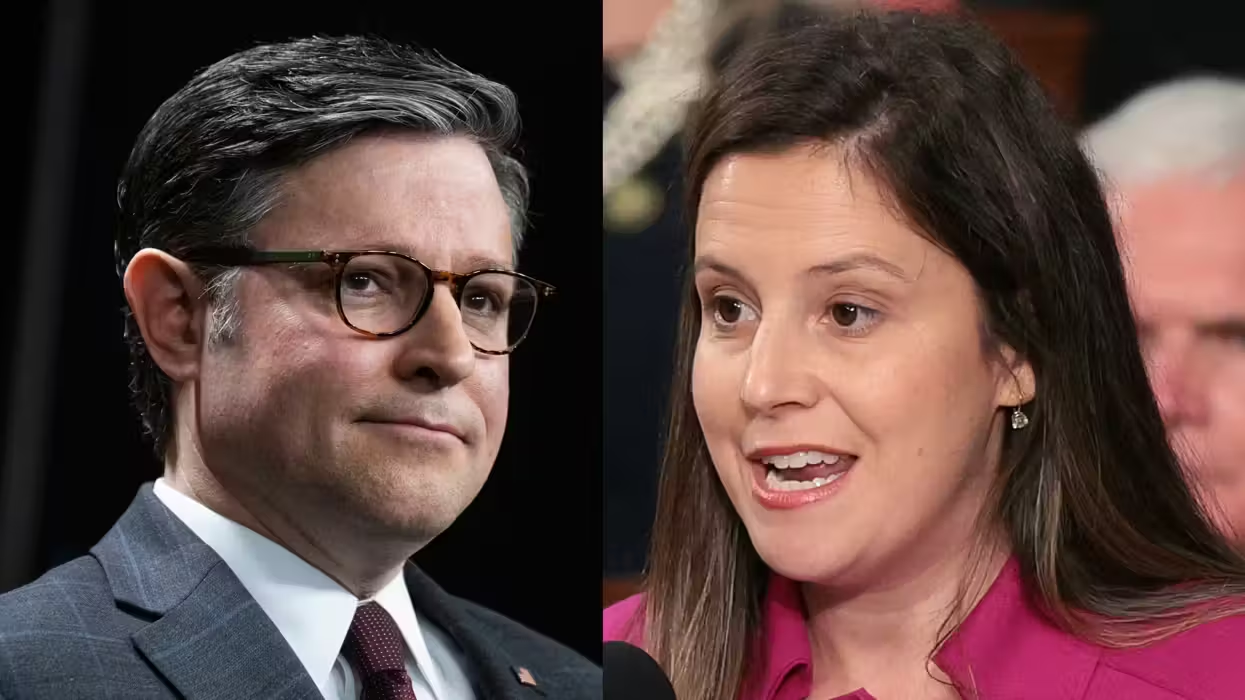
© 2025 Blaze Media LLC. All rights reserved.
The Financial News Everyone's Watching in Cyprus: Parliament Votes 'No' on Tax
March 19, 2013
Zero votes in favor.
With zero votes in favor and 19 abstentions, Cyprus’ parliament voted Tuesday to reject the terms of a $13 billion bailout deal that included a controversial levy on all depositors.
"No to new colonial bonds, no to subjugation, no to national dishonor and raw blackmail," said house speaker Yiannakis Omirou during the debate before the vote.
The rejection leaves Cyprus's bailout in question. Without external funds, the country's banks face collapse and the government could go bankrupt.
So what happens now? Here are four likely scenarios:
1. Cyprus eventually caves and approves a bailout deal that includes a depositor levy.2. Considering that Cyprus has already been issued billions by the Russian government, and the fact that Russian banks and business account for nearly half of all Cypriot deposits, the small Mediterranean country forgoes EU assistance in favor of even more Russian bailout money.
3. The EU backs down. Afraid that Cyprus (under pressure from her own people and Russia) refuses to accept the terms of the bailout package, EU creditors amend the bailout deal in order to give Cyprus more flexibility. However, this may prove difficult as Germany is opposed to using its own cash to bailout a country so deeply involved with Russian interests.
4. No one budges and Cyprus falls apart. The country’s biggest banks fail, putting its €30 billion in insured deposits at risk. Cyprus’ entire financial system collapses, forcing it off the euro and on to its own currency.
Nicholas Papadopoulos, the chairman of the parliamentary finance committee, said banks would remain closed "for as long as we need to conclude an agreement" but stressed this would be "in the next few days." Banks had been ordered to remain shut until Thursday while the bill was debated and amended, to prevent a bank run.
Papadopoulos said Cyprus wanted wants a renegotiation of its bailout deal.
Finance Minister Michalis Sarris flew to Moscow Tuesday afternoon to meet with his Russian counterpart, arriving there shortly before the vote -- and promptly dismissing rumors that he had offered to resign in the interim.
Andreas Charalambous, a senior official at the ministry, said the aim is to extend repayment of a €2.5 billion loan Russia granted Cyprus in late 2011 when the country could no longer borrow from international markets.
He said Cyprus was also looking for "potential interest for further investment in the country."
Charalambous also said Cypriot authorities believe depositors should be protected, but that a wholesale exemption for those below €100,000 would mean a "disproportionate" burden on large savers, and a "very detrimental" knock-on effect on economic growth.
"Because of the size of the estimated (bailout) needs, the burden on those above €100,000 would be such that it would again impact small people because it would destroy the ability of the country to attract foreign investment," Charalambous said.
In a Monday night teleconference, eurozone finance ministers concluded that small depositors should not be hit as hard as others. They said Cyprus should stagger the seizures more, but insisted that the overall take should stay the same.
President Nicos Anastasiades, who was elected less than a month ago, told German Chancellor Angela Merkel Monday night that "the possibility of reducing the requirements from self-raised funds is being explored," a Cypriot government spokesman said.
--
Follow Becket Adams (@BecketAdams) on Twitter
The Associated Press contributed to this report. Featured image Getty Images
This post has been updated.
Want to leave a tip?
We answer to you. Help keep our content free of advertisers and big tech censorship by leaving a tip today.
Want to join the conversation?
Already a subscriber?
more stories
Sign up for the Blaze newsletter
By signing up, you agree to our Privacy Policy and Terms of Use, and agree to receive content that may sometimes include advertisements. You may opt out at any time.
Related Content
© 2025 Blaze Media LLC. All rights reserved.
Get the stories that matter most delivered directly to your inbox.
By signing up, you agree to our Privacy Policy and Terms of Use, and agree to receive content that may sometimes include advertisements. You may opt out at any time.






